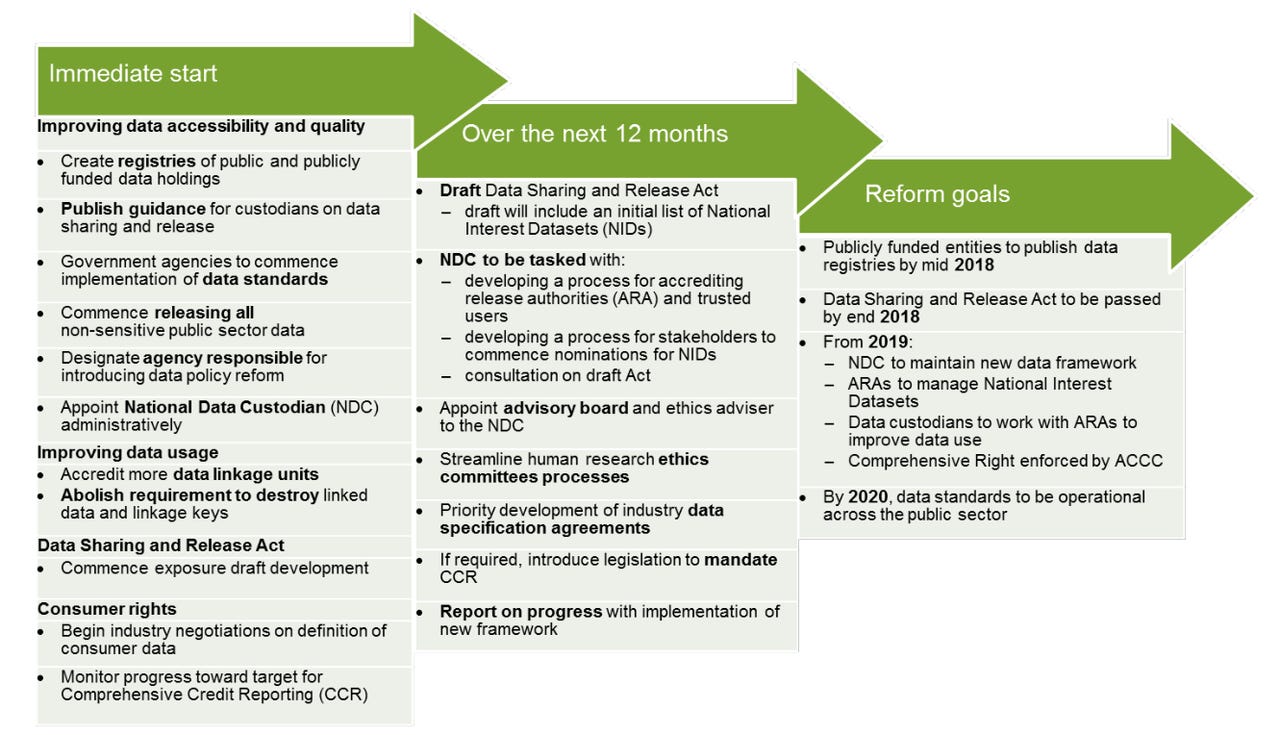Productivity Commission calls for Data Sharing Act as consumer opt-out rights binned


Australians will not have legislative backing to tell anyone collecting data on them to stop, the Productivity Commission has said in its Data Availability and Use report.
The Commission cited responses to its draft report that argued it would be too difficult to implement an opt-out right for consumers, as the reason it walked back on one of its draft recommendations.
"Across the spectrum, submissions argued that there would be a need for various exceptions and qualifications to such a right, to the point that we can no longer in good faith suggest that this is applicable comprehensively," the Commission said.
The Commission stated it was possible for the market to respond to customer demand and offer services that did not collect information on them.
The report also recommended the establishment of the Office of the National Data Custodian, which would be charged with overseeing the operation of a new Data Sharing and Release Act that was recommended to be in place before the end of 2018.
The Act would contain a Comprehensive Right for consumers, and small and medium-sized businesses (SMB), to request edits and corrections of data stored on them, and to have machine-readable copies of their consumer data sent to them or another entity.
According to the Commission, consumer data would include all digital data that is defined as personal under the Privacy Act, any files posted online by the consumer, data from any transactions or activities, and data obtained from third parties on the individual or SMB.
The report said allowing the transfer of data would boost competition.
"Apart from building social licence through greater opportunity to use data, this right would afford individuals and SMEs more choice about the products and services they consume, and the providers of those, and be an avenue to improve market competitiveness and innovation," the Commission said.
"No longer will it be just the collectors of data that are able to determine its uses and realise its value."
The Australian Competition and Consumer Commission would be responsible for making sure consumers are able to transfer their data, the Commission said, but the report shied away from making any technical recommendations, and instead preferred to leave it up to industry to decide.
"We -- and indeed, a majority of stakeholders responding to the Draft Report -- are strongly against locking in a particular technological approach that all industries must adopt," the report said.
"We consider that participants in each industry, rather than governments, are best placed to develop these standards and determine them as part of the industry-agreed approach to transfer technology."
The National Data Custodian would also be responsible for designating National Interest Datasets, determining and providing funding to Accredited Release Authorities, and have the power to audit de-identification processes.
The Australian government is currently attempting to have legislation passed that would make it illegal to intentionally re-identify a de-identified dataset.
The Commission also recommended the government abolish its requirement to destroy statistical linkage keys at the end of data research projects.
"It is akin to book burning," the report said.
"Where an Accredited Release Authority is undertaking multiple linkage projects, it should work towards creating enduring linkage systems to increase the efficiency of linkage processes."
The report also downplayed the use of the Privacy Act as a vehicle for its recommendations, particularly regarding customer data.
"Privacy regulators ... emphasised to us their preference for the human right of privacy over consumer interests. Whereas from a national welfare perspective, as required in the Productivity Commission's Act, it is evident that privacy is one aspect of data use, not pre-eminent other than that it is incumbent."
Assistant Minister for Cities and Digital Transformation Angus Taylor said the recommendations would boost transparency.
"Government recognises first and foremost that the community must trust and accept any reforms to Australia's data system," he said.
"A cross-portfolio taskforce has been established within the Department of the Prime Minister and Cabinet to consult with stakeholders and develop the government's full response."